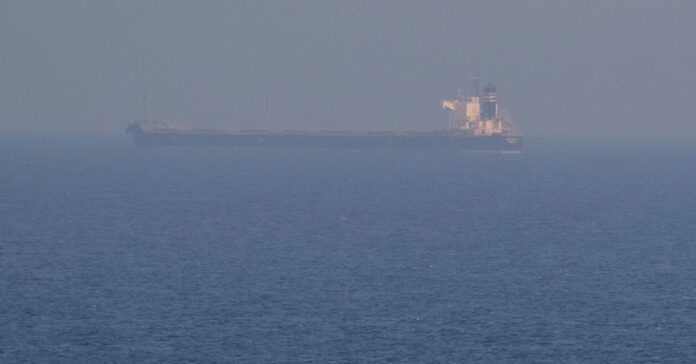Ukraine announced a “humanitarian corridor” on Thursday to let dozens of cargo ships trapped in its ports since the outbreak of war last year sail into the Black Sea, where shipping routes are under scrutiny since Russia quit a deal to allow grain exports, according to Reuters.
At least initially, the corridor appears to apply to vessels such as container ships that have been stuck in Ukrainian ports since the Feb. 2022 invasion, and were not covered by the deal that opened the ports for grain shipments last year.
But it could be a major test of Ukraine’s ability to reopen sea lanes at a time when Russia is trying to reimpose its de-facto blockade, having abandoned the grain deal last month.
“Today a new temporary humanitarian corridor has started to work,” Oleh Chalyk, a spokesperson for Ukraine’s navy, told Reuters by telephone.
“The corridor will be very transparent, we will put cameras on the ships and there will be a broadcast to show that this is purely a humanitarian mission and has no military purpose,” he said.
In a statement, the navy said the routes had already been proposed by Ukraine directly to the International Maritime Organization (IMO).
The routes would “primarily be used for civilian ships which have been in the Ukrainian ports of Chornomorsk, Odesa, and Pivdenny since the beginning of the full-scale invasion by Russia on February 24, 2022.”
“Vessels whose owners/captains officially confirm that they are ready to sail in the current conditions will be allowed to pass through the routes,” the statement said.
It said a risk remained from mines in the Black Sea and the military threat from Russia.
A German grain trader told Reuters: “People want more details about the Ukrainian temporary shipping channel announced today as it cannot work unless Russia gives a concrete commitment not to attack the ships.”
Chalyk gave no indication the corridor had been agreed with Russia. Last month, Moscow quit the year-old Black Sea grain deal that had allowed Ukraine to safely export agricultural products, saying that a parallel deal to help ease Russia’s own grain and fertiliser exports was not being implemented.
The United Nations has said Russia’s decision to quit the deal risks creating a global food crisis, hurting poor countries worst, by keeping grain from one of the world’s biggest exporters off the market.


